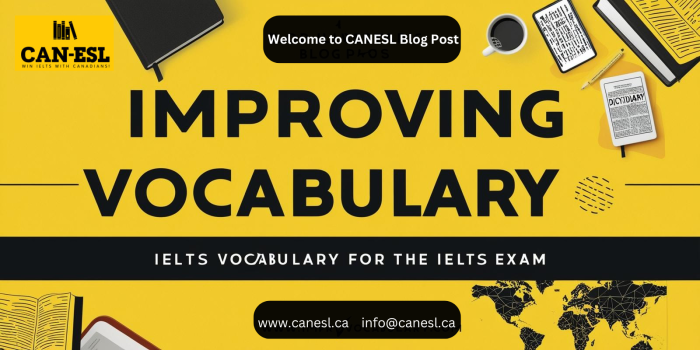

Preparing for the IELTS exam can be challenging, but one of the
best ways to boost your performance is by strengthening your vocabulary. Since
vocabulary is essential in both the reading and writing sections (not to
mention helpful in listening and speaking), a solid plan for building it up can
make a big difference. Here are some proven strategies to help you learn,
retain, and confidently use the words you need on test day.
1. Set Specific Vocabulary Targets
Having a focused goal can make learning new words feel
manageable. Aim to learn a set number of words each week (e.g., 10–15) and
commit to using these words in sentences every day. By setting clear,
achievable targets, you'll make steady progress without feeling overwhelmed.
2. Use Vocabulary in Context
Memorizing lists of words might feel productive, but it’s
not the most effective way to retain them. Practice using new vocabulary in
sentences or short paragraphs to understand each word's meaning, nuances, and
proper usage. Applying words in real-life contexts helps reinforce your memory
and makes recalling them easier when needed.
3. Organize Your Learning
Keeping vocabulary organized can be incredibly helpful.
Create a system that works for you, whether it’s lists, flashcards, or even a
digital app. Group words by themes, like academic topics or common IELTS
categories (e.g., technology, education, environment), or by word types (nouns,
verbs, adjectives). This method not only helps you learn but also allows you to
quickly review words before the test.
4. Practice with Synonyms and Contextual Use
The IELTS exam often tests synonyms and similar expressions.
Expanding your vocabulary with synonyms can be a game-changer. Try learning
alternative words for commonly tested terms, and practice using these
variations in sentences to get comfortable with their usage. This approach
enhances both your vocabulary range and your ability to recognize meaning in
context.
5. Read Widely and Actively
Exposure to a wide range of reading materials is a fantastic
way to grow your vocabulary. From news articles and essays to blogs and
academic journals, each type offers new words and phrases. As you read, make a
habit of noting down unfamiliar words and researching their meanings. This way,
you're not only expanding your vocabulary but also improving your reading
skills simultaneously.
6. Test Yourself Regularly
Self-testing is a powerful way to reinforce what you've
learned. Each week, go back to your vocabulary list and quiz yourself. Can you
recall the meanings without looking? Can you use them in sentences? Regular
review is key to retention and will help you recall vocabulary more easily
under exam conditions.
Final Thoughts
Building a strong vocabulary isn’t about memorizing long
lists of complicated words. It’s about understanding the words, practicing
their use, and reviewing them until they become second nature. By incorporating
these strategies into your IELTS preparation, you’ll be more confident with the
vocabulary questions on test day — and it will show in your score!
Good luck, and happy studying!
#IELTSPrep #VocabularyBuilding #StudyTips #IELTS
This approach to vocabulary will not only improve your IELTS
score but also enhance your overall English proficiency, helping you express
yourself more precisely and effectively. Start with these tips, stick to a
consistent practice schedule, and watch your vocabulary soar!
Learn More:
Visit Now:
📍 Saskatoon Office: 531
Wall St, Saskatoon, SK S7L 0Y7, Canada
📍 Regina Office: 170–2410
Dewdney Ave, Regina, SK S4R 1H6, Canada
📧 Email: info@canesl.ca